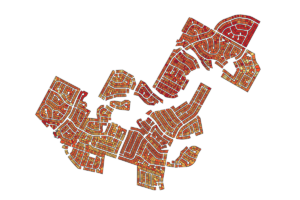University of Texas at Austin sociologist Pamela Paxton has been awarded a $148,000 grant from the Science of Generosity Initiative at the University of Notre Dame to study how social, economic and political structures affect individuals’ generosity toward one another.
Paxton’s study is one of 13 research projects to receive funding from the initiative, which promotes research on generosity, altruism, philanthropy and related issues and shares those findings with corporate, civic, religious and philanthropic communities.
“We are hoping to identify not only the individual characteristics associated with generosity but also the larger social forces that shape generosity,” says Paxton, the Centennial Commission Professor in the Liberal Arts who is also on faculty at the university’s Population Research Center.
She will examine data from two cross-national surveys to study generosity from an intercultural perspective. She will be among the first social scientists to look at both the personal factors and larger societal forces that drive generosity.
Among other things, Paxton will examine how the social, economic and political structures of nations affect generosity — for example, whether welfare states “crowd out” individual generosity or promote it by modeling generous behavior.
The year-old Science of Generosity Initiative is distributing $1.4 million to nine projects in this round of grants. Four other projects were funded earlier this year.
“In two rounds of competition, we received almost 700 research proposals, and these 13 projects gradually emerged as the most scientifically rigorous and promising we have seen,” said Christian Smith, the William R. Kenan Professor of Sociology at Notre Dame and director of the generosity initiative. “They are led by top-notch researchers and address a variety of important questions from diverse perspectives.”



